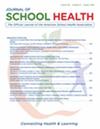Evaluation of the Reliability and Validity of the Perceptions of Skills Enhanced Through School Health Education (PSE-SHE) Measure
Abstract
Background
School health education promotes health knowledge and skills, yet measurement of teens' health skills is limited. We psychometrically assessed the perceptions of skills enhanced through school health education (PSE-SHE) measure.
Methods
Cross-sectional data (n = 471) were collected from teens using Teen and Parent Surveys of Health, conducted through AmeriSpeak Panels. The survey included one 5-item question assessing teens' perceptions of health skills enhanced through school health education—including getting health information and services, and understanding factors influencing health, communication, decision-making, and advocacy. For each PSE-SHE item, a 3-level categorization measure was examined (strongly agree/agree, neither agree nor disagree, and strongly disagree/disagree). Cronbach's alphas and confirmatory factor analysis (CFA) examined PSE-SHE measures' reliability and validity. Structural equation modeling used the CALIS procedure (SAS 9.4).
Results
High Cronbach's α = 0.91 was observed for the PSE-SHE measure, indicating internal consistency. Polychoric correlations among PSE-SHE items (0.68–0.81) were found. CFA confirmed substantial factor loadings (0.72–0.84, p < 0.0001) of each item on the latent factor (CFI = 0.98), supporting construct validity.
Implications for School Health Policy, Practice, and Equity
The reliable and valid PSE-SHE measure may inform skills-focused health education research.
Conclusions
Psychometric results confirm the PSE-SHE measure is valid in capturing perceptions of skills enhanced through school health education.

 求助内容:
求助内容: 应助结果提醒方式:
应助结果提醒方式:


